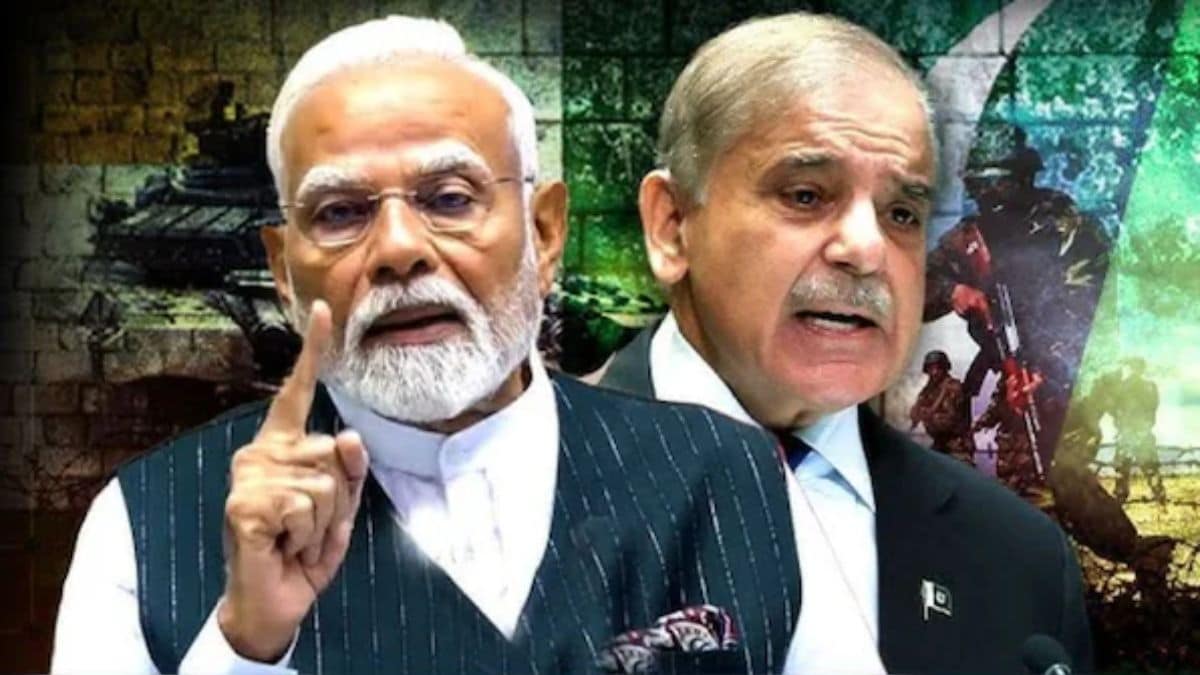Pakistan PM Shehbaz Sharif’s call for “meaningful dialogue” with India is met with scepticism in New Delhi, given a long history of peace talk offers followed by betrayal. India remains firm: no talks without concrete action against terrorism.
read more
Pakistan Prime Minister Shehbaz Sharif on Wednesday said his country was ready for a “meaningful dialogue” with India to resolve all outstanding issues. However, the statement follows a familiar and recurring pattern that has left India deeply sceptical. New Delhi views such peace overtures from Islamabad as part of a well-worn script, historically been followed by betrayal and hostile actions.
Sharif made the remarks during a meeting with British High Commissioner Jane Marriott in Islamabad, where the two discussed regional affairs and bilateral ties. According to an official statement, Sharif “expressed his appreciation for the UK’s role in de-escalation of tensions during the Pakistan-India standoff” and reiterated that “Pakistan was ready for a meaningful dialogue with India on all outstanding issues.”
The comments come in the wake of Operation Sindoor, launched by India on May 7 to target terror and military infrastructure in Pakistan’s territories following the deadly Pahalgam terror attack.
However, India’s position remains firm: any dialogue must centre around Pakistan-occupied Kashmir (PoK) and an end to cross-border terrorism. Indian officials have consistently warned against falling into the trap of rhetoric-driven diplomacy from Pakistan that lacks sincerity and follow-through.
A pattern of peace talk offers followed by betrayal
Pakistan’s leadership has a long history of extending olive branches publicly while permitting or orchestrating actions that sabotage the very idea of peace.
1999 Kargil War: Just months after then-Prime Minister Atal Bihari Vajpayee visited Lahore in a ground-breaking peace initiative with Nawaz Sharif, Pakistani troops and militants, under the guidance of General Pervez Musharraf infiltrated Indian territory in Kargil, triggering a bloody conflict that cost hundreds of lives.
2001 Agra Summit: After the Kargil betrayal, India cautiously resumed dialogue. But the summit collapsed and in December that year, terrorists from Pakistan attacked the Indian Parliament, a strike that nearly brought the two nations to the brink of war.
2008 Mumbai Attacks: Another major setback came after years of back-channel diplomacy and confidence-building measures. The 26/11 attacks, carried out by Pakistan-based Lashkar-e-Taiba operatives, left 166 people dead and shattered any remaining trust.
Post-Uri and Pulwama attacks: In more recent years, terror attacks in Uri (2016) and Pulwama (2019), again linked to Pakistan-based groups, were met with Indian military responses, surgical strikes and airstrikes in Balakot, respectively that further cementing India’s view that engagement with Pakistan has repeatedly been undermined by acts of terror.
India’s cautious stance
The Indian government has been saying unequivocally that talks cannot proceed under the shadow of terrorism. Without visible, verifiable action from Pakistan to dismantle terrorist networks operating from its soil, India remains unwilling to resume any substantive dialogue.
In this context, Sharif’s latest outreach is being viewed in New Delhi not as a genuine diplomatic move but as part of a familiar playbook, one where calls for peace serve as a smokescreen for strategic inaction or deception.
